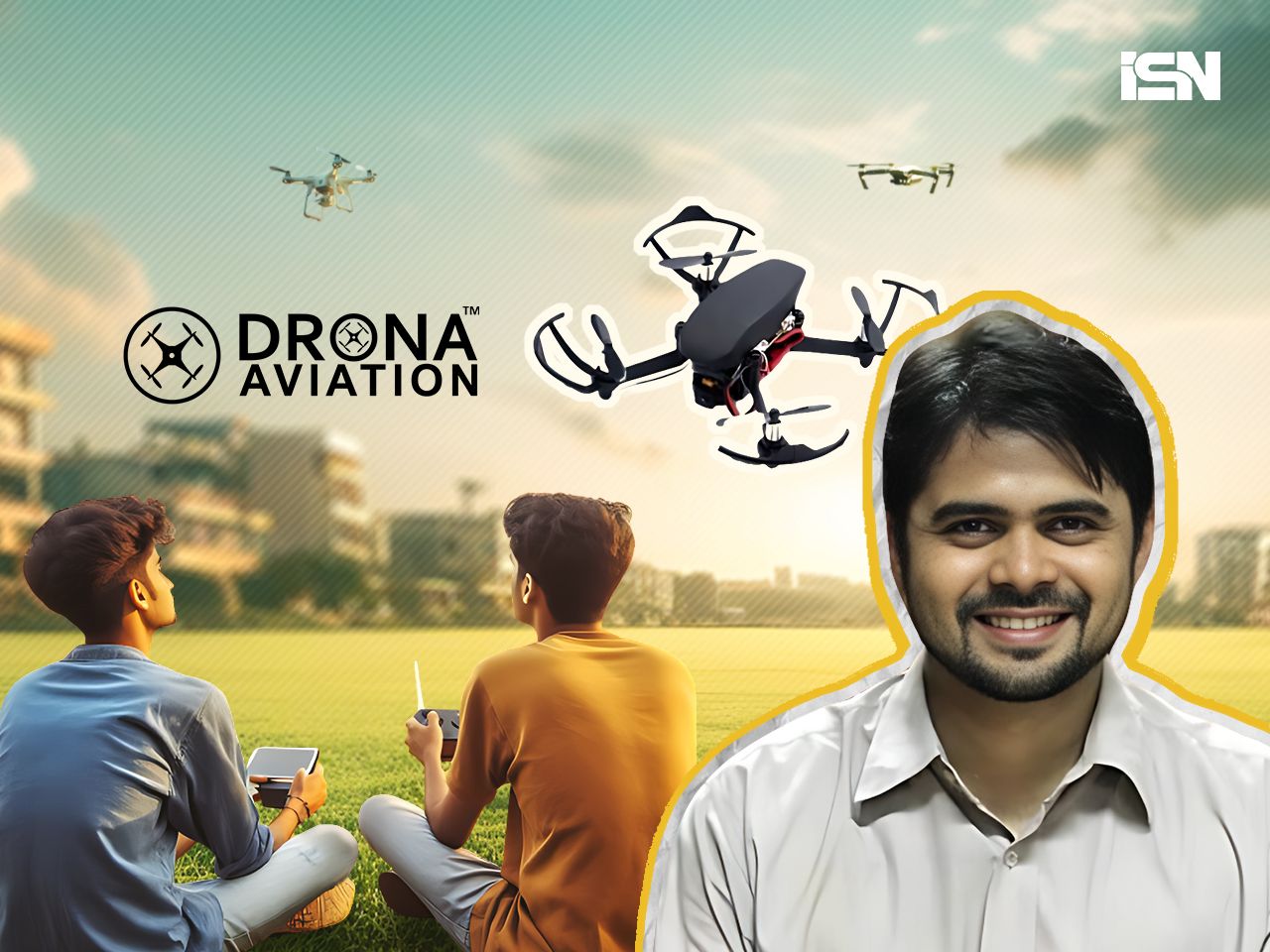In the buzzing world of drones, we often find ourselves mesmerized by the big, flashy ones that hog the spotlight. But we cannot overlook the pint-sized champs – nano drones.
From helping out in intense military operations to making movies more epic with jaw-dropping aerial shots, and even becoming our personal little spies for tracking stuff, nano drones have their fingers (or should we say, propellers) in all the pies.
But, The Indian education sector hasn’t fully caught up to this mini-drone revolution.
In a world where the drone sector is buzzing with innovations and possibilities, the niche of nano drones, particularly in the educational sector, remains largely unexplored in India. Nano drones, weighing up to 250 grams, hold immense potential in various fields, such as military operations, cinematography, and tracking systems.
However, the lack of knowledge and accessibility has hindered the growth of this sector.
The Birth of Drona Aviation
To address this issue and unlock the potential of nano drones, a group of visionary entrepreneurs emerged. Dinesh Sain, Prasanna Shevare, and Apurva Godbole, all alumni of the prestigious Indian Institute of Technology Bombay (IIT Bombay), founded Drona Aviation.
The Mumbai-based startup has a dual mission: to manufacture high-quality nano drones and to educate young minds about the exciting world of drone technology.
Dinesh Sain, driven by his love for drones since his college days, set out to make a career out of his passion. Prasanna Shevare, known for his exceptional skills and knowledge, joined forces with Dinesh to bring their drone dreams to life. Apurva Godbole, another brilliant mind from IIT Bombay, completed this dynamic trio.
Their journey began with a shared vision of introducing nano drones into the Indian education landscape. The founders recognized that these tiny flying machines had the potential to revolutionize the way students learn about technology, engineering, and innovation. With their collective expertise and determination, The founders embarked on the mission to make high-quality nano drones accessible to schools and colleges across India.
But Drona Aviation’s mission goes beyond just building drones; it’s about nurturing the next generation of innovators. They believe in hands-on learning, where students can not only fly these drones but also delve into the intricate world of drone technology.
Through comprehensive educational programs and innovative products like Pluto X and Pluto 1.2, they’re shaping a brighter future where drones are not just toys but tools for learning and innovation.
Innovative solution for education
As per the latest data, the drone technology market in the education sector is expected to grow by $499.16 million from 2021 to 2026. Additionally, 39% of the market growth in this sector is projected to originate from the Asia-Pacific (APAC) region. This indicates a significant expansion of drone technology adoption within the education industry.
Drona Aviation’s journey began with the launch of Pluto X, a Ready-to-Fly (RTF) nano drone. According to the startup, The drone was designed to provide students with hands-on experience in drone technology.
Unlike traditional educational methods, Pluto X allows students to tinker, learn, and experiment with various aspects of drones. They can even customize their drones by adding different accessories and delving into the complexities of image processing.
What sets Drona Aviation apart is its commitment to innovation. The startup designs and manufactures its flight controllers, a rare feat in India. This self-reliance enables them to provide a comprehensive ecosystem for learning and experimenting with drones.
Empowering through education
In addition to Pluto X, Drona Aviation introduced Pluto 1.2, an advanced DIY kit that empowers students to build their drones before taking flight. This DIY approach fosters a deeper understanding of drone technology, making learning both fun and educational.
Drona Aviation’s commitment to education extends beyond product offerings. The strategic collaboration has led to the development of a specialized drone module, integrated into the Atal Tinkering Labs program. The primary objective is clear: to nurture the talents of young minds and equip them with the essential skills needed in an era dominated by drones and automation. By providing access to drone technology and education, Drona Aviation empowers the youth of India to embrace the future confidently.
In a price-sensitive market like India, affordability is crucial. Drona Aviation stands out by providing cost-effective, programmable, and modular drones.
The startup product range includes options with prices ranging between Rs 7,200 and Rs 14,000, making drone technology accessible to a wider audience.
Overcoming industry challenges
Despite its innovative approach, Drona Aviation has not been without its challenges. The startup has faced comparisons with cheaper alternatives, but it has successfully demonstrated the value of its educational ecosystem. To date, it has penetrated 8,000 schools across India, making a significant impact on the educational landscape.
The vision of the Drona Aviation team is akin to the revolutionary impact that Arduino had on electronics and Raspberry Pi had on computation. Pluto, their educational drone platform, aims to serve as a powerful tool for teaching, learning, and experimentation in the field of drones.
Also Read:
How Live-a-bit is addressing the neglected oral care crisis with its eco-friendly oral care products



![[CITYPNG.COM]White Google Play PlayStore Logo – 1500×1500](https://startupnews.fyi/wp-content/uploads/2025/08/CITYPNG.COMWhite-Google-Play-PlayStore-Logo-1500x1500-1-630x630.png)